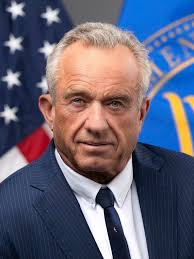RFK Jr.: A New Voice in American Politics

Introduction
Robert F. Kennedy Jr., commonly known as RFK Jr., is emerging as a notable figure in the political landscape of the United States. With his recent announcement to run for President in 2024, Kennedy—an environmental lawyer and vaccine sceptic—draws a varied audience, showcasing a blend of progressive ideals alongside controversial beliefs. His campaign signifies a call to address pressing issues such as climate change, public health, and governmental transparency.
The Rise of RFK Jr.
Kennedy’s political journey has been shaped by a legacy that extends back to his family name, which carries significant weight in American history. As the son of Robert F. Kennedy and nephew of President John F. Kennedy, RFK Jr. has leveraged this heritage to amplify his message. His activism dates back decades, focusing primarily on environmental issues, notably as a proponent for clean water initiatives and against pollution in the Hudson River.
In April 2023, Kennedy announced his candidacy for the 2024 Presidential election, positioning himself as a challenger against the political status quo. His campaign has stirred debates surrounding health policies, especially with his critical stance on vaccines, which he argues undermine citizens’ freedoms. Despite the potential backlash, he maintains a steadfast base of support, attracting voters disenchanted with traditional party politics.
Key Events and Issues
Throughout 2023, RFK Jr. has embarked on an extensive nationwide tour, holding town halls and rallies to garner public efforts. His campaign focuses on influential themes such as restoring democracy, protecting civil liberties, and combating corporate monopolies. His messages resonate, particularly among a demographic frustrated with government overreach and looking for alternative narratives during political discourse.
Additionally, Kennedy’s approach to climate change blends scientific advocacy with personal responsibility, advocating for sustainable practices while urging significant policy reforms. His ability to connect with younger voters and those concerned about ecological futures may define a new chapter in his political career.
Conclusion
RFK Jr.’s entrance into the political fray is a pivotal moment as it challenges both Democratic and Republican norms. His unique platform taps into an undercurrent of sentiment in America—a desire for change amidst growing skepticism. As the 2024 elections approach, the implications of Kennedy’s campaign will be closely monitored, potentially altering the trajectory of American political dynamics. Whether his platform can translate into viable policies and voter support remains to be seen, but RFK Jr. is certainly a voice to watch in the coming years.
